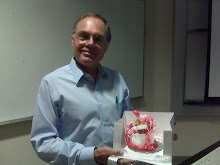How Hate Spreads
There are probably more ideas floating around our society than ever before. This isn't always a good thing. The Internet has been identified as a prime place where extreme ideas--some of them potentially violent--spread. Adolescent boys are often being targeted for exposure to these ideas. NPR reports.
Questions...
•When was the first time you were confronted with hateful or otherwise dangerous material on the internet? How old were you?
•Have you experienced recommendations that are more and more extreme?
•"Neurodivergent" boys and men with career or relationship setbacks are particularly likely to receive these hate messages. What can they do to keep themselves from going off the deep end? What can we do to help them from doing that?
•Is this a serious problem? What will you do as a parent to make sure your children are not affected by extreme ideas on the Internet?
Labels: cybercrime, international, internet, mediaeffects, medianoteclassic, SLO2, socialnetworking

